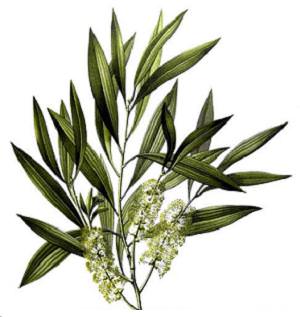Tea tree oil benefits

The benefits of tea tree oil – nature’s wonder
Tea tree oil is distilled from the Melaleuca plant native to Australia. The oil is a natural anti-bacterial disinfectant that has been used by the Aboriginal people of Australia for thousands of years. In recent times, tea tree oil has been confirmed as having tremendous medicinal benefits, becoming a popular ingredient in all kinds of soaps, lotions, ointments and shampoos because of its amazing healing powers.
Tea tree oil’s benefits are endless... it can be used to treat a wide variety of ailments and conditions.
What are the benefits of tea tree oil?
Tea tree oil has antifungal, antiviral and antibacterial properties, making it an ideal natural product to treat many skin conditions, cuts, fungal infections, etc.
Studies have shown that tea tree oil will effectively treat respiratory issues such as:-
- coughs
- runny nose
- sore throat
- asthma
- tuberculosis
- bronchitis
It can also strengthen the immune system that is often left weakened by the use of antibiotics, stress or illness. Skin conditions can also be treated with tea tree oil, such as:-
- warts
- insect bites
- rashes
- blisters
- acne
- athlete’s foot
- herpes
Tea tree oil uses
Some common uses for tea tree oil are as follows:-
Skin conditions
Tea tree oil for acne
Tea tree oil is an excellent natural treatment for acne. One study has found the oil to be just as effective as benzoyl peroxide (the common ingredient in most store-bought acne creams), but without any negative side effects such as peeling or redness.
Tea tree oil for nail fungus
Because of tea tree oil’s natural antifungal properties, you can effectively treat nail fungus by applying 1-2 drops of the oil directly to the affected nail. Repeat this daily and the infection should clear up within 2-3 months.
Tea tree oil for warts
Tea tree oil can be used as an effective treatment for warts.
Oral conditions
Tea tree oil toothpaste
Fight gum disease by using a tea tree oil toothpaste - you can make this yourself at home.
Tea tree oil mouthwash
If you use tea tree oil in a mouthwash it will help kill bacteria that will often be the cause of bad breath and mouth ulcers. Simply add 3 drops of tea tree oil to a cup of warm water – use the solution as a mouthwash 2-3 times per day. (Always spit out the tea tree oil mouthwash – do not swallow!)
Sore throat and congestion
You can help cure sore throats and congestion by using a tea tree oil steam inhalation technique that will help clear up mucus – here’s how:-
- Fill a large pot of water and bring to the boil.
- Remove the pot from the stove and add 3-4 drops of tea tree oil.
- Cover your head with a towel, lean over the top of the pot so the towel drapes over the edges, locking in the steam.
- Inhale the vapours for between 5 and 10 minutes.
Repeat this process every night until your symptoms are cured completely. If your symptoms persist for more than 5 days it’s probably a good idea to visit your doctor.
Hair conditions
Tea tree oil and dandruff
Help cure your dandruff with tea tree oil by using a shampoo that contains 5% tea tree oil.
Tea tree oil and head lice
By adding tea tree oil to a detangling spray, you can repel unwanted head lice.
Please note: Pregnant and breastfeeding mothers should avoid using tea tree oil.
Tea tree oil health benefits
There are so many health benefits to using tea tree oil:-
Cuts and sores: add 1-2 drops directly to the targeted area - the antibacterial properties will help heal any wounds.
Household cleaner: Add to water and vinegar for a non-toxic household cleaner. Use to clean shower walls, benchtops or to remove mold – you can even add a few drops to your laundry wash.
Healing bath: For a soothing soak, add 6-10 drops of tea tree oil to your bath water.
Diffuser: You can create a medicinal antiseptic by adding a few drops of tea tree oil to your diffuser.
If you have sensitive skin, it’s always best to dilute tea tree oil in a base oil (eg. olive oil), otherwise you may experience itchiness, irritation or redness.
Tea tree oil should never be swallowed in its undiluted form as it can result in vomiting, diarrhea or excessive drowsiness. If you notice any of these side effects please seek medical attention immediately. Extra care should be taken when using tea tree oil near the eyes or genitals.
Benefits of tea tree oil for hair
Tea tree oil for scalp problems
When it comes to common scalp problems, tea tree oil has been proven to provide relief from dry, itching skin.
Tea tree oil for dandruff
The tea tree oil component of a shampoo will help unclog blocked hair follicles, keeping the hair and scalp free of bacteria and fungus.
Tea tree oil for head lice
Tea tree oil contains antiseptic properties and is a promising treatment for head lice. It has been discovered that the slippery nature of the tea tree oil can block the transmission of head lice from hair to hair.
Benefits of tea tree oil for skin
Tea tree oil has so many antifungal and antibacterial benefits that the Australian army puts it in their soldiers’ first aid kits! You can use tea tree oil in a variety of ways on the skin:-
- cuts and scrapes
- itching
- insect bites
- warts
- ringworm
- athlete’s foot
Disclaimer
The content on this website is not intended to be a substitute for professional medical advice, diagnosis, or treatment. Always seek medical advice for any questions regarding a medical condition.

